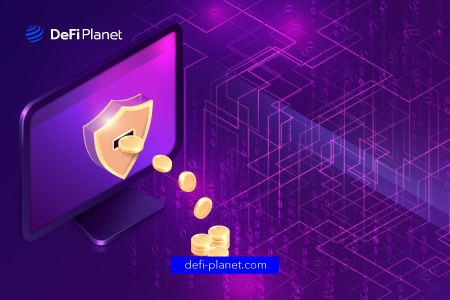Blockchain organizations raise funds using different crowdfunding methods to develop their architecture. Usually, projects create their native tokens before deploying their decentralized apps on the blockchain. These tokens are then sold to potential users or investors to utilize in the native environment when it is deployed.
During the sales of the native token, blockchain platforms use that opportunity to raise funds that can be used in developing their architecture and deploying them on the blockchain.
Fundraising can come in multiple formats such as Initial Coin Offering, Initial Exchange Offering, Initial DEX Offering, Initial Game Offering, and Initial NFT Offering.
This article analyzes the definition of Security tokens, types of security tokens, Security Token Offering, what to expect, the advantages, disadvantages, and other means of raising funds as a blockchain platform.
What is a Security Token?
Security tokens are digital tokens that represent assets such as stocks, gold, bonds, real estate equity, commodities, and precious metals. They are closely regulated because they are classified as securities by most governments.
Security tokens from a blockchain platform confer ownership of the underlying asset on the holder. For instance, if the token is meant to represent stocks, the holder is seen as a shareholder in the issuing organization, meaning they are expected to receive the same benefits as regular shareholders. They can vote in meetings and receive dividends.
Security tokens are strictly regulated by the authorities. Before anyone can access them, they are expected to undergo a Know Your Customer (KYC) process, which involves disclosing personal information.
As a result of the extensive regulations from the government, this type of token is not traded on regular crypto exchanges.
What is a Security Token Offering?
A Security Token Offering (STO) is a means of raising funds involving a blockchain company or platform issuing a digital token representing a stake in the organization or a particular asset. STOs bear similarities with Initial Public Offerings (IPOs), which are strictly regulated by the government.
In the case of an STO, the blockchain company is issuing digital securities to potential investors, meaning they have to comply with government regulations. This means of fundraising is under the purview of the government, and it is expected that organizations seek the necessary approval from the authorities before using it.
STOs are comparable to ICOs in that investors receive tokens representing their stakes in the blockchain company. Despite their similarities, they are very different from one another.
Firstly, STOs are strictly regulated by the government, unlike their counterpart, ICOs. Before an individual or organization can issue a security token, they must obtain approval from the relevant authorities. Secondly, ICOs have a lower barrier to entry than STOs. Thirdly, ICOs can be accessed by anyone. In most cases, the KYC requirements for an ICO are not as stringent as those for an STO.
Fourthly, ICOs are riskier because they are less tightly regulated by the authorities. History is replete with instances of fraudulent platforms disappearing after hosting ICOs.
Lastly, tokens issued in an ICO are typically intended to be utilized in the native environment of the issuing organization. For instance, the tokens could be used to pay transaction or gas fees after a transaction in the native network. In the case of security tokens, they are intended to represent ownership of the underlying asset.
What Are The Types of Security Tokens?
Security tokens are classified as debt, equity, or asset-backed tokens.
Asset-Backed Tokens
An asset-backed token is a security token that represents real-world assets such as gold and art.
The token’s value is typically determined by the value of the underlying asset. Their transaction records, like those of cryptocurrencies, are available on the blockchain. They are usually traded on Security Token Exchanges.
Equity Tokens
Equity tokens are security tokens based on the shares or securities of an organization. This type of security token is equivalent to equity in an organization in terms of rights and responsibilities.
Holders of equity tokens can vote in meetings as shareholders and earn dividends from the organization. The difference between equity tokens and shares is that token holders’ information is stored on the blockchain, whereas shareholders are issued paper certificates.
Debt Tokens
This type of security token is issued by a company seeking a loan. The security token terms are determined by the loan’s duration, interest rate, and repayment terms. If it’s a convertible bond, the debt token can be converted to an equity token after a certain period if the holder chooses to do so. The token’s value is determined by the loan risk, repayment terms, dividend, the availability of a convertible option, and other factors.
What Are The Advantages of Security Token Offerings?
Security Token Offerings provide specific advantages to both the issuing organization and the investors, some of which are discussed below.
• Flexibility
STOs are typically conducted online and can be participated in by investors from all over the world as long as they meet the KYC requirements. This enables organizations to reach out to more potential investors.
Aside from the benefits mentioned above, security tokens are more liquid than traditional stocks because investors can easily dispose of them on a security token exchange without having to go through the traditional stock disposal process.
• Less risk
Security tokens are less risky than cryptocurrencies because the government has a vested interest in them. Before issuing an STO, any organization must seek approval from the authorities. In the United States, for example, before any organization can issue a security token, it must meet the US Securities and Exchange Commission‘s minimum requirements and request approval.
The vetting process reduces the risks of investors losing their money to fraudsters. Hosting an STO lends credibility to the issuing organization.
• Reduced crime
Security tokens are more regulated than traditional cryptocurrencies. This means that before an individual can use a security token exchange to purchase or sell tokens, they must undergo a KYC process. This reduces the chances of individuals using security tokens to commit crimes such as money laundering.
• Cost effective
Hosting an STO is more cost-effective than organizing an IPO because smart contracts can be used to reduce the usage of traditional contracts and solicitors.
What Are The Disadvantages of Security Token Offerings?
Though STOs are an innovative method of raising funds, they have some drawbacks.
- Some regions may prohibit non-residents from participating in an STO, and the KYC requirements may deter investors who prefer to remain anonymous.
- STOs are more complex than other types of fundraising, such as ICOs and IDOs.
- Companies must keep up with rapidly changing regulatory landscapes and new government guidelines.
Alternative Blockchain Fundraising Methods
Aside from the Security Token Offering, there are other ways for a blockchain platform to raise funds to develop its architecture.
Initial Coin Offering (ICO)
An ICO is a fundraising method that can be likened to the IPOs that traditional companies do during their fundraising stage. Typically, a crypto project offers its native tokens in exchange for the capital raised. Investors participate in the hope that the native tokens will provide them with access to the project’s functionalities as well as the option to sell them at a higher value in the future.
Initial Exchange Offering (IEO)
An IEO is a fundraising method utilized by crypto projects or companies to raise funds for infrastructure development while offering native tokens to its investors through exchanges. This is done on a centralized exchange, and the native token is usually listed on the exchange after the fundraising event ends.
Initial DEX Offering (IDO)
An IDO is a token offering organized by a decentralized exchange.
Because of the permissionless nature of this type of exchange, liquidity pools are required for the operation of IDOs.
Any blockchain platform can organize its IDO on a decentralized launchpad; the native token is usually listed on the DEX immediately after the fundraising event.
Initial NFT Offering (INO)
Some popular NFT marketplaces are beginning to offer NFT startups the opportunity to host INOs. An Initial NFT Offering is a new form of fundraising by blockchain platforms, except that in this case, NFTs (Non-Fungible Tokens) are sold in exchange for money. An NFT startup seeking funds to develop its architecture or for other reasons can sell its NFTs to investors in exchange for fiat or cryptocurrencies.
Initial Game Offering (IGO)
An IGO is a fundraising method used by blockchain gaming companies to raise funds, build a community, and access other associated benefits. Typically, a blockchain gaming startup offers the native tokens of their platforms as a reward to those who provide funds to develop the gaming platform. As the blockchain space evolves, new fundraising methods emerge.
In Conclusion,
- A Security Token Offering (STO) is a method of raising funds in which a blockchain company or platform issues a digital token representing a stake in the organization or a specific asset.
- Security tokens are digital tokens that represent assets such as stocks, gold, bonds, real estate equity, commodities, and precious metals.
- Different jurisdictions have different requirements for companies to meet before organizing a Security Token Offering.
- Know Your Customer/ Anti-Money Laundering (KYC/AML) guidelines are crucial aspects of an STO.
- Security tokens are traded on Security Token Exchanges.
If you would like to read more articles like this, visit DeFi Planet and follow us on Twitter, LinkedIn, Facebook, and Instagram.
“Take control of your crypto portfolio with MARKETS PRO, DeFi Planet’s suite of analytics tools.”





















